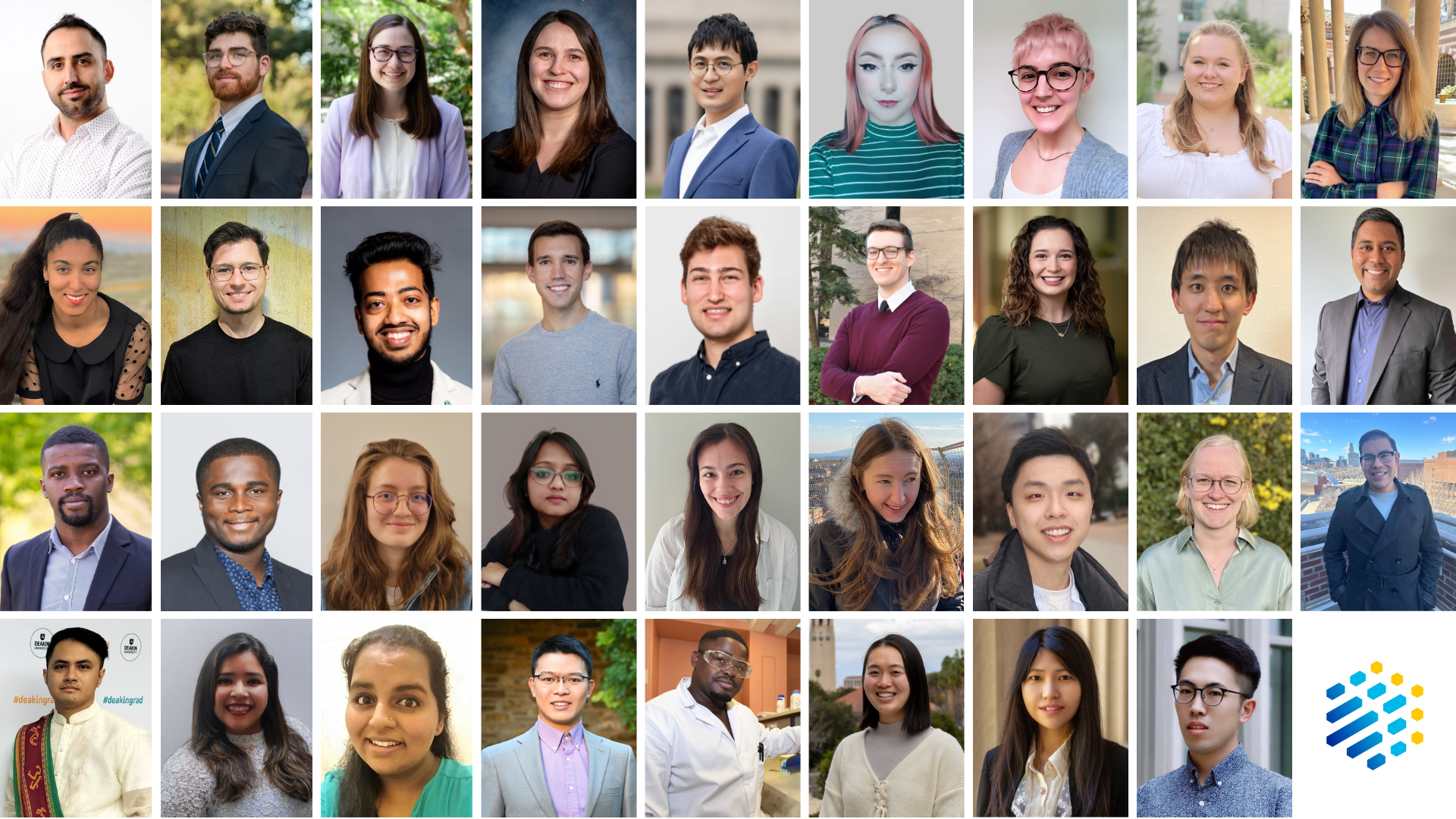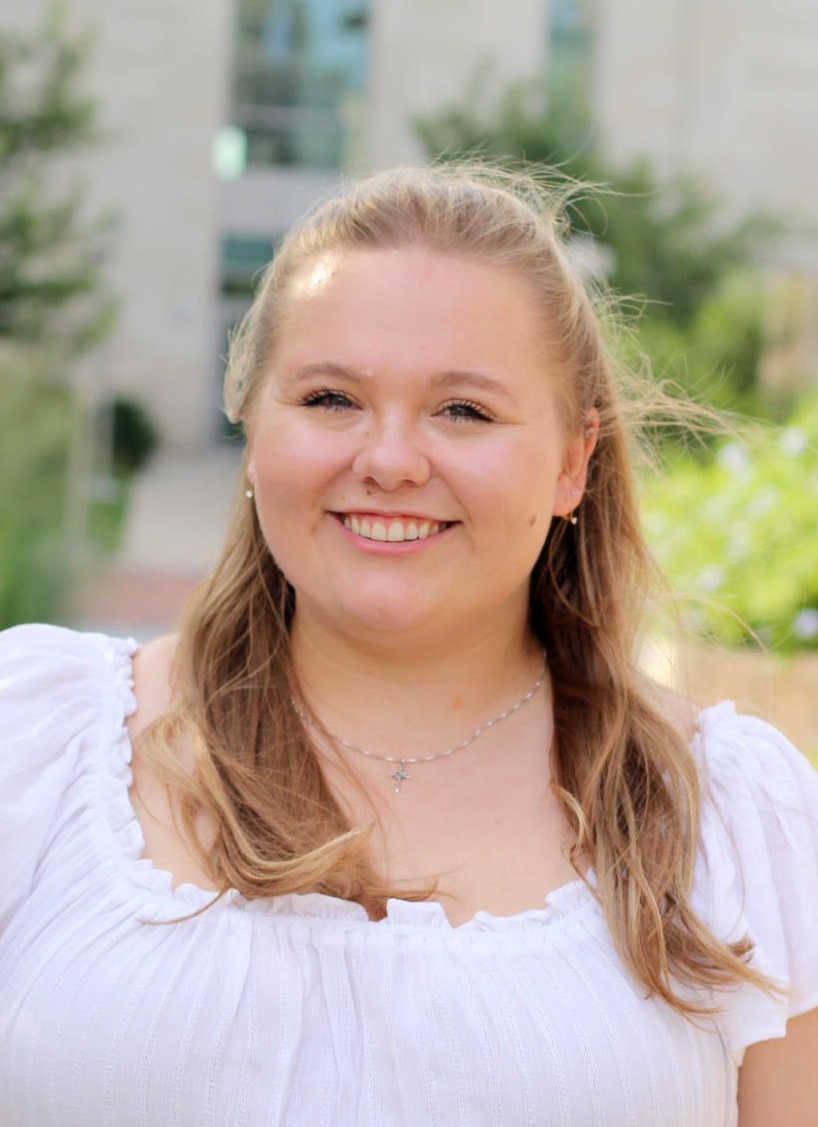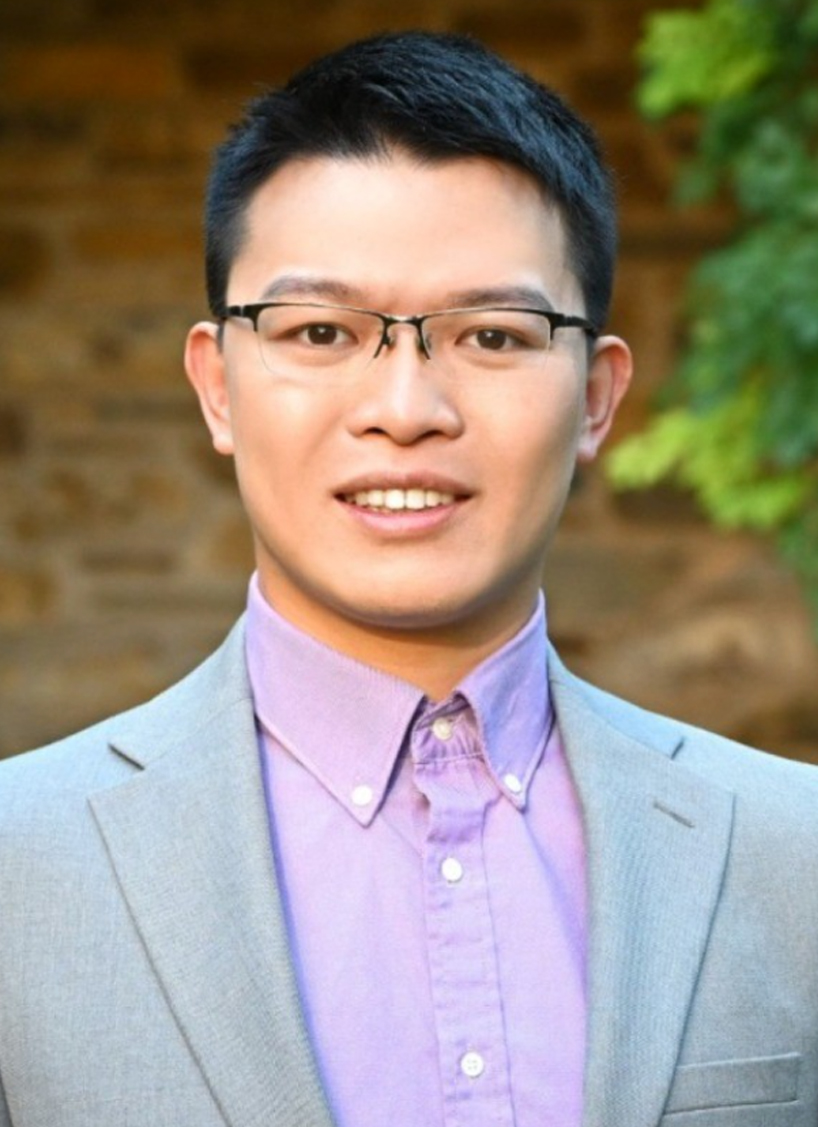
Two graduate students from the Department of Chemistry at Texas A&M University have earned selection as 2024 participants in the CAS Future Leaders Program, an elite scientific leadership immersion opportunity provided through the American Chemical Society (ACS).
Chemistry doctoral student Madison E. Edwards '25 and 2023 chemistry Ph.D. graduate Dr. Kunyu Wang '20 are among the 35 international Ph.D. and postdoctoral students representing 13 countries and a wide array of scientific disciplines chosen as the 2024 class, which includes 21 members from the United States.
Established in 2010 by CAS, a division of the ACS, the CAS Future Leaders program is a coveted opportunity for Ph.D. students and postdoctoral scholars in chemistry and related sciences, drawing hundreds of applications from all over the world every year for a spot in the program known as one of the best leadership learning experiences in the world of science. During the past decade and a half, the program has selected 334 CAS Future Leaders from 39 different countries/regions to participate in the week-long immersive, in-person program designed to reward early-career scientists with essential scientific, business and leadership training culminating in a trip to the ACS National Meeting and Exposition, one of the most respected scientific meetings in the world.
From August 12-17, Edwards, Wang and their fellow CAS Future Leaders will visit the CAS headquarters in Columbus, Ohio, to get a behind-the-scenes look into how CAS connects the world’s science while also participating in multiple inspirational networking and leadership training sessions. At the conclusion of their stay in Columbus, CAS Future Leaders will travel as a group to present their research at ACS Fall 2024, set for August 18-22 in Denver. Each also receives an honorarium along with a three-year ACS membership.
“CAS Future Leaders offers early-career scientists the opportunity to participate in leadership and storytelling seminars, learn from industry thought leaders how to present their ideas in an impactful manner, engage in scientific discourse and develop connections with peer scientists from around the world,” said CAS Future Leaders Program Director Dr. Peter Carlton. “From hundreds of applicants, we mindfully select individuals who are accomplished scientists and also demonstrate leadership in their communities — improving people’s lives in various ways.”

Since August 2020, Edwards has been pursuing doctoral studies at Texas A&M as a member of Dr. Xin Yan’s research group, which features a cutting-edge combination of catalysis and molecular synthesis, synthetic and structural biology, and sustainability in a broader effort to develop and apply novel mass spectrometric methodologies in disease diagnosis, reaction monitoring, and new synthetic methodology. The Yan Group specializes in droplet chemistry, a compartmentalized ecosystem ripe with synthetic chemistry potential, from faster, more efficient chemical reactions to accelerated production of small molecules.
Edwards previously was honored in 2022 with a prestigious National Science Foundation Graduate Research Fellowship recognizing her future potential in chemical research and scholarship. Prior to coming to Texas A&M four years ago, she received bachelor’s degrees in biochemistry and classical studies from Purdue University in 2020, working as an undergraduate researcher in the same laboratory as Yan, who earned her Ph.D. in chemistry from Purdue in 2015 under the mentorship of Dr. R. Graham Cooks, Henry B. Hass Distinguished Professor of Analytical Chemistry at Purdue and a 2020-21 Texas A&M Hagler Institute for Advanced Study (HIAS) Fellow.
Edwards’ research innovates mass spectrometric methods for challenging lipidomic analyses, thus enhancing disease understanding. Microdroplet reactions in confined spaces with increased surface-to-volume ratio accelerate reactions significantly. In her research, she integrates these accelerated reactions into mass spectrometry ion sources, pioneering methods for crucial lipid isomer characterization, especially focusing on disease-diagnostic unsaturation positions in lipids.
Like her mentors, Edwards has achieved her own research renown, co-authoring several publications and also presenting on her research on accelerated microdroplet reactions and theta capillary microreactors at the 2024 Spring ACS National Meeting and at both the 70th and 71st American Society for Mass Spectrometry Conferences, held in 2022 and 2023, respectively. In addition, she was invited to present her work on the development of an interfacial microreactor for low-volume biofluid analysis at the 2024 Gordon Research Conference on Lipidomics, set for May 5-10 in Italy.
To date, Edwards has received numerous awards, including the Ethel Ashworth-Tsutsui Memorial Award for Mentoring, the Thomas J. Hairston Memorial Graduate Scholarship, a KHP Activity and Demonstration Development grant, a Chemistry departmental summer travel award and a First Year Chemistry Program Teaching Award in 2022 and the ACS Division of Analytical Chemistry Younger Chemist Travel Grant, the Martin Donald Corera Memorial Endowed Travel Award and Graduate Recruitment, Enhancement and Travel (GREAT) supplemental funding in 2023.
"I am super delighted that Madison was selected to the prestigious CAS Future Leaders Program," Yan said. "She has developed an interface microreactor, facilitating thin film reactions at the air-liquid interface and enabling nanoliter volume biofluid analysis through reactive mass spectrometry."

Wang came to Texas A&M in August 2018 after receiving his bachelor’s of science degree in chemistry from Nankai University, where he studied metal-organic frameworks under the guidance of Professor Wei Shi. He previously worked with semiquinoid molecular magnets in 2017 as an undergraduate research intern within Dr. T. David Harris’ group at Northwestern University. After earning his Ph.D. from Texas A&M in May 2023, he joined Dr. Christopher B. Murray’s laboratory at the University of Pennsylvania as a Vagelos Institute Postdoctoral Fellow. His research at UPenn focuses on developing hierarchical metal-organic frameworks for energy-related applications.
As a member of Dr. Hongcai Joe Zhou’s research group at Texas A&M, Wang worked on novel strategies for the design of multi-component and hierarchical metal-organic frameworks. During the course of his graduate career, he published more than 60 peer-reviewed articles, including multiple first or co-first-author papers in top-notch journals, such as Angewandte Chemie, ACS Materials Letters, ACS Central Science, Trends in Chemistry, Chemical Society Reviews and Matter. In addition, he has presented his research at many conferences, including the Royal Society of Chemistry (RSC) Faraday Discussion, Gordon Research Conference and ACS National Meeting. Wang also served as a graduate teaching assistant for three years, teaching multiple sections of laboratory courses for both general chemistry and organic chemistry.
In addition to his Vagelos Institute fellowship, Wang’s career honors to date include a 2023 Texas A&M University Distinguished Graduate Student Award for Research, a 2022 ACS Younger Chemist Leadership Development Award, a 2022 Foresight Institute Fellowship, first prize in the 2021 ACS Division of Energy and Fuels Student Presentation Awards Competition, runner-up honors in the 2021 RSC PreDoc Symposium, a 2020 RSC Faraday Discussion Poster Prize and a 2020 RSC Travel Grant for Early Career Scientists.
"Dr. Kunyu Wang's selection as a 2024 CAS Future Leader not only recognizes his exceptional academic achievements and remarkable leadership qualities but also serves as an inspiration for future generations of graduate students, encouraging them to pursue success regardless of their diverse backgrounds," Zhou said.
To learn more about CAS, a division of the American Chemical Society, and CAS Future Leaders, go to https://www.cas.org/.
For more information on graduate studies in chemistry at Texas A&M, visit https://www.chem.tamu.edu/graduate/.

